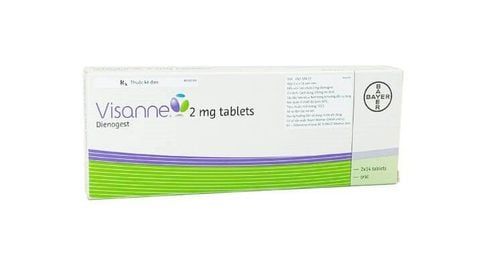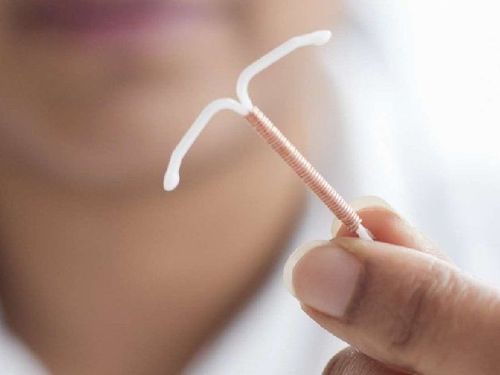Novynette is an oral contraceptive containing the active ingredients Desogestrel and Ethinylestradiol. It is formulated as film-coated tablets.
1. What is Novynette?
Novynette is an oral contraceptive with the active ingredients:
- Desogestrel (0.15 mg)
- Ethinylestradiol (0.02 mg)
The tablets are round, light yellow, and biconvex.
2. How to Use Novynette and Its Dosage
Novynette is taken on the first day of the menstrual cycle at a dose of 1 tablet per day for 21 consecutive days.
To avoid missing doses, take the tablet at the same time each day.
Stop taking the pill for 7 days (the menstruation period).
Restart the next pack after 7 days, regardless of whether the period has ended.
Overdosing on Novynette does not typically cause severe side effects. However, in cases of excessive intake, gastric lavage (stomach washing) may be necessary.
If a dose is missed within 12 hours: Take the missed tablet as soon as remembered, then continue with the next tablet as usual. No additional contraceptive method is needed.
If a dose is missed after 12 hours: Take the last missed tablet immediately (you may need to take 2 tablets on the same day). Use an additional contraceptive method (e.g., condoms) for 7 days.

3. Side Effects of Novynette
Novynette may cause some side effects with the following frequency and severity
Common, less severe side effects:
- Amenorrhea, intermenstrual bleeding.
- Increased size of uterine fibroids.
- Worsening of endometriosis.
- Vaginal infections (e.g., Candida).
- Breast tenderness, swelling, or discharge.
- Nausea, vomiting, gallstones, cholestasis-related jaundice.
- Skin rash, erythema nodosum, melasma (facial pigmentation).
- Eye discomfort when wearing contact lenses.
- Headaches, depression, mood changes.
- Fluid retention, edema, impaired glucose tolerance.
Rare side effects:
- Increased risk of thrombosis, including deep vein thrombosis, pulmonary embolism, myocardial infarction, or stroke.
- Very rare side effects: Gallstones, cholestasis, jaundice, systemic lupus erythematosus exacerbation.
If any severe side effects occur, discontinue use and contact your doctor immediately.
4. Precautions When Using Novynette
4.1 Dosage Considerations
- First-time users: No additional contraceptive method is required if the pill is started on the first day of menstruation.
- If started between days 2–5 of menstruation: Use an additional contraceptive method for the first 7 days.
- If you have passed the 5th day of your period, to be effective, you should start taking the medicine in the next menstrual cycle.
- For postpartum mothers who are breastfeeding, if you wish to use Novynette for contraception, you can start taking it on the 21st day after delivery. During the first 7 days of taking the pill, no additional contraceptive method is needed. However, it is not recommended to use oral contraceptives while breastfeeding as they may reduce milk production.
- For women who have had an abortion or miscarriage, if contraception is desired, Novynette should be started immediately without the need for additional contraceptive methods.
- Switching from another contraceptive to Novynette: Finish the current pack before switching directly to Novynette without waiting for a new menstrual cycle. After starting Novynette, no additional contraceptive methods are required. However, if the previous contraceptive was a progestin-only pill, Novynette should be started on the first day of menstruation, and no additional contraception is needed.
- If you are using a progestin-only contraceptive pill and are not within your menstrual cycle, you can start taking Novynette on any day of your cycle. However, you must use an additional contraceptive method for the first 7 days of the cycle.
- Alternative contraceptive methods to be used in these cases include condoms, cervical caps containing spermicide, or abstinence. Intrauterine devices (IUDs) should not be used.
- If you wish to skip a period, continue taking the pills as usual without a break. If breakthrough bleeding (small spotting) occurs while skipping the period, the contraceptive effectiveness remains unaffected. After the usual 7-day break, resume the pills as instructed.
- If vomiting or diarrhea occurs within 12 hours of taking Novynette, take another pill once symptoms resolve.
- If symptoms persist beyond 12 hours, use additional contraception for 7 days.

4.2 Other Important Precautions
Novynette is contraindicated in individuals with:
- Pregnancy or suspected pregnancy.
- Moderate to severe hypertension or hyperlipoproteinemia.
- A history of arterial thrombosis or venous thromboembolism.
- Cardiovascular disease associated with diabetes.
- Liver or biliary disorders.
- Estrogen-dependent cancers or unexplained vaginal bleeding.
- Systemic lupus erythematosus or hypersensitivity to Novynette components.
- A history of pruritus, jaundice, genital herpes, or otosclerosis during pregnancy.
Before using Novynette for contraception, women should undergo a comprehensive health examination to assess their overall health, pregnancy status, and any potential disease risks. If a pre-existing condition worsens or symptoms become more severe while using the contraceptive, discontinue the medication immediately and consult a doctor for non-hormonal contraceptive alternatives.
The conditions requiring special attention include:
- Blood clotting disorders.
- Heart failure, kidney failure, or sickle cell anemia (related to infection or hypoxia).
- Epilepsy.
Discontinue use immediately if symptoms of thrombosis arise, including:
- Sudden chest pain, radiating to the left arm.
- Shortness of breath.
- Severe headache, dizziness, or vision disturbances.
- Unusual leg pain, swelling, or abdominal pain.
Other Precautions:
- Avoid smoking while using Novynette, as it increases the risk of thrombosis, particularly in women over 35 years.
- If breakthrough bleeding occurs after using Novynette for several months, the contraceptive effectiveness may be reduced.
- If you experience menstrual irregularities or amenorrhea (absence of menstruation) without signs of pregnancy, continue taking the medication until the pack is finished. If menstruation still does not occur at the end of the cycle or irregular bleeding persists, discontinue the medication to confirm non-pregnancy before resuming use.
- Laboratory test results for the liver, kidneys, thyroid, and adrenal glands may be altered due to the estrogen component in Novynette.
- Novynette’s effectiveness may be reduced when combined with medications for: Epilepsy, tuberculosis, HIV, pulmonary hypertension, migraines, inflammation, or fungal infections.
- Novynette may also interact with:
Immunosuppressants, Asthma medications., Beta-blockers, Antidepressants., Anticoagulants., Blood pressure medications, Lipid-lowering agents, Analgesics and antipyretics, Laxatives. - Using Novynette with antibiotics may increase the risk of liver and gallbladder issues.
- Diabetes patients: Novynette can affect glucose tolerance, increasing insulin or antidiabetic drug requirements. Inform your doctor of all medications, supplements, or herbal products you are using.
Novynette is primarily used for contraception. For optimal effectiveness and to minimize risks, follow the instructions carefully and consult a doctor if you have any concerns about contraception methods.
To arrange an appointment, please call HOTLINE or make your reservation directly HERE. You may also download the MyVinmec app to schedule appointments faster and manage your reservations more conveniently.













